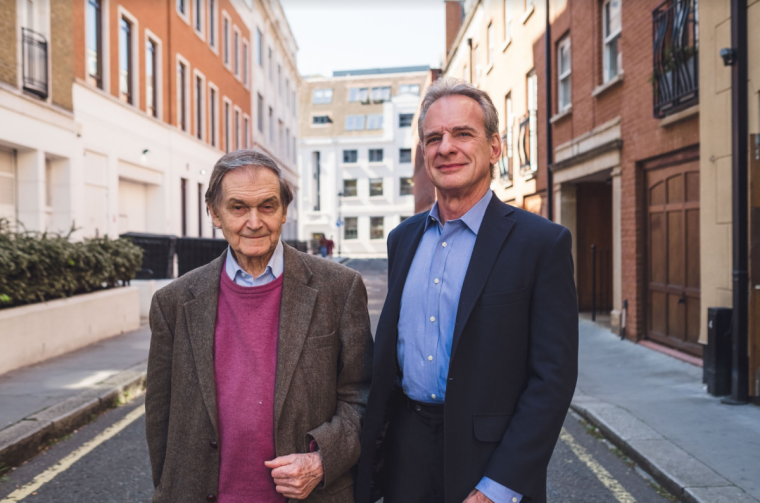Celebrated cosmologist challenged to consider whether God is the answer to 'great mysteries' of the universe

A leading cosmologist who worked with the late Stephen Hawking to prove the Big Bang theory has been challenged to believe in God.
Sir Roger Penrose said in a debate with Christian apologist William Lane Craig that he did not deny the existence of God but that he couldn't see "why this explains very much".
They were debating each other in a new episode of Premier Christian Radio's Unbelievable programme, which aired on Friday.
He admitted there were "three great mysteries" in the realms of mathematics, consciousness and the physical world that science is yet to explain.
These three mysteries according to Penrose are the mathematical precision of the universe, the existence of consciousness, and how consciousness permits humans to make sense of that mathematical precision.
"Mystery number one is the fact that this world of physics is so extraordinarily precisely guided by mathematical equations. The precision is extraordinary," he said.
"Mystery number two is how conscious experience can arise when these circumstances seem to be right. It's not just a matter of complicated computations; there's something much more subtle going on.
READ MORE: Stephen Hawking believed we don't need God to account for the universe. Was he right?
"Mystery number three is our ability to use our conscious understanding to comprehend mathematics and these very extraordinary self-consistent but deep ideas, which are very far from my experiences."
His former colleague Hawking consistently rejected the God hypothesis in his lifetime and Penrose seemed equally reluctant to give it credance.
However, he did allow for the possibility that God might exist.
"I'm not saying I deny it. I just don't see why this explains very much ... to say that this god-like entity, whatever it is, is something with a consciousness of its own," he said.
"Now I'm not saying it's wrong, and it might be that there is such a thing."
Craig, who in 1979 published the Kalam Cosmological Argument stating the case for a Creator behind the universe, suggested that it was only a "small step" to believing that a unifying answer to the "three great mysteries" was God.
"I'm not trying to drive anyone to a conclusion. I'm offering a metaphysical solution to what you admit are profound mysteries in your own worldview, where we have these three disparate realms of reality that don't seem to connect very well ... you've already got the realm of mind ...it's a small step to postulate an omniscient mind," said Craig.
He adds, "We know that minds can design things. The view that there is an omniscient mind who has designed the physical world on the mathematical blueprint that it had in mind, is a very ancient perspective that goes back to Middle Platonism.
"People like Philo of Alexandria, who said that the intelligible cosmos exists first in the mind of the Logos, the divine intellect,and then is instantiated in the physical world by the Logos, who creates the world on this blueprint.That seems to me to be a good solution."
'There is no God:' Stephen Hawking has his last say on the matter in final book
UK scientists are more atheist than the rest of the population











